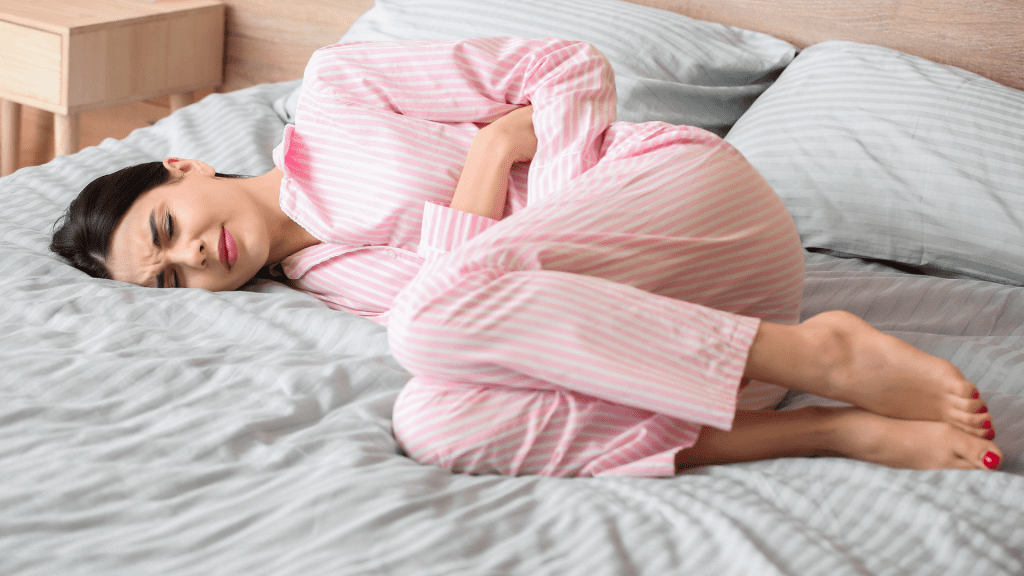By Dr. Vrushali Pillai (MBBS, DGO) Senior Consultant, Obstetrics & Gynaecology, Borneo Hospital, Thane
In summary, dealing with painful periods shouldn’t be a monthly battle you endure in silence. There are many effective, doctor-approved strategies you can use to reduce period pain and reclaim your comfort. From the immediate relief offered by heat therapy and mindful movement to the long-term benefits of an anti-inflammatory diet and proper hydration, these seven tips form a powerful toolkit.
By integrating these healthy eating habits and relaxation techniques into your lifestyle, you can significantly lessen the severity of menstrual cramps and improve your overall quality of life during your cycle. However, it is absolutely crucial to listen to your body. While most period pain is primary dysmenorrhea and manageable, severe, debilitating pain or pain that worsens over time can be a sign of an underlying medical condition.
The key takeaway is to feel empowered to manage common discomforts while also knowing when to seek expert medical care. Never hesitate to consult a gynaecologist if your pain feels unmanageable. At Borneo Hospital, we are here to provide a thorough evaluation and create a personalised plan to help you find lasting relief.
Introduction
For millions of women across India, “that time of the month” brings more than just a minor inconvenience; it brings days of debilitating cramps, backache, and fatigue that can disrupt daily life. So many of my patients tell me they’ve been told that severe period pain is just “something women have to bear.”
As a gynaecologist, I want to state this clearly: while some discomfort can be normal, you do not have to simply endure severe pain. There are many ways we can manage and reduce period pain.
My name is Dr. Vrushali Pillai, and I am a Senior Consultant in Obstetrics & Gynaecology at Borneo Hospital in Thane, part of our network serving families in Nashik, Chhatrapati Sambhaji Nagar, and Raipur. In my 15 years of practice, I’ve seen how effectively we can manage menstrual cramps with a combination of lifestyle adjustments and, when needed, medical care. This article will be your practical guide, offering seven doctor-approved ways to find relief, so you can feel more in control of your body and your well-being.
Understanding Your Period Pain (Dysmenorrhea)
Before we get to the solutions, it helps to understand the cause. The medical term for painful periods is dysmenorrhea. It’s broadly divided into two types:
- Primary Dysmenorrhea: This is the most common type. It’s cramping pain caused by natural chemicals called prostaglandins, which are produced in the lining of your uterus. They help your uterus contract to shed its lining, but high levels can cause intense cramps, nausea, and headaches. This type is not caused by another medical condition.
- Secondary Dysmenorrhea: This is period pain caused by an underlying medical condition in the reproductive organs, such as endometriosis, uterine fibroids, adenomyosis, or Pelvic Inflammatory Disease (PID). This pain often starts earlier in the cycle and can last longer than typical cramps.
Now, let’s explore some effective strategies you can start using today to reduce period pain.
7 Doctor-Approved Ways to Find Relief
1. Embrace Heat Therapy
This is one of the simplest and most effective home remedies for period pain. Applying heat to your lower abdomen or lower back helps to relax the contracting uterine muscles, providing almost instant relief.
- How to do it: Use a hot water bottle (wrapped in a thin towel to protect your skin) or a heating pad. You can also take a warm bath, which has the added benefit of relaxing your entire body. A warm shower with the water directed at your lower back can also be incredibly soothing. The warmth improve blood flow and eases the cramping sensation.
2. Gentle Exercise & Yoga
When you’re in pain, exercise might be the last thing on your mind, but gentle movement can be one of your best allies. Exercise releases endorphins, which are your body’s natural painkillers and mood elevators.
What to do:
- Walking: Even a short, gentle walk can help ease cramps.
- Stretching: Light stretching, especially for the lower back and abdomen, can relieve muscle tension.
- Yoga: Certain yoga poses are excellent for menstrual discomfort. Try Marjaryasana-Bitilasana (Cat-Cow Pose) to gently massage the spine and abdomen, Balasana (Child’s Pose) to relieve back tension, and Baddha Konasana (Cobbler’s Pose) to open the hips.
3. Adjust Your Diet (Before and During Your Period)
What you eat can have a direct impact on the severity of menstrual cramps. An anti-inflammatory diet can be very effective.
Foods to Include:
- Omega-3 Fatty Acids: Found in fish, walnuts, and flaxseeds (alsi). They have anti-inflammatory properties.
- Fruits & Vegetables: Rich in antioxidants and vitamins. Bananas, rich in potassium, can help with bloating and cramping.
Calcium & Magnesium: Found in dairy, ragi, leafy greens, and nuts. These minerals can help reduce muscle cramping. - Ginger & Turmeric: These common Indian spices are potent natural anti-inflammatories. A warm cup of ginger tea or haldi doodh (turmeric milk) can be very comforting.

Foods to Limit:
- Salty & Processed Foods: Can cause bloating and water retention.
- Excess Sugar: Can increase inflammation.
- Caffeine: Can sometimes worsen cramps and anxiety.
4. Use Over-the-Counter (OTC) Pain Relief Wisely
For moderate to severe cramps, medical pain relief is a safe and effective option.
- NSAIDs (Nonsteroidal Anti-Inflammatory Drugs): Medications like ibuprofen or mefenamic acid are often the most effective because they directly target and lower the production of prostaglandins, the chemicals causing the cramps. For best results, it’s often advised to take them as soon as you feel the pain starting, rather than waiting for it to become severe.
- Paracetamol: Can also help with mild pain but may not be as effective for severe cramps as NSAIDs.
- Important Note: Always take medication as directed on the package and with food. If you have any medical conditions (like stomach or kidney issues) or are on other medications, please consult your doctor at Borneo Hospital before taking any OTC pain relievers.
5. Try Massage & Relaxation Techniques
The connection between mind and body is powerful. Reducing stress can help your body manage pain more effectively.
- Gentle Massage: Gently massaging your lower abdomen in a circular motion can help relax the muscles. You can use a small amount of a warming essential oil like lavender or clary sage mixed with a carrier oil like coconut oil (do a patch test first).
- Mindfulness & Deep Breathing: Simple deep breathing exercises can calm your nervous system and help you cope through the peak of a cramp. Inhale slowly through your nose, letting your belly expand, and exhale slowly through your mouth.
6. Stay Hydrated with Warm Fluids
Dehydration can worsen muscle cramps.
- Drink Plenty of Water: Aim to drink warm or room-temperature water throughout the day.
- Herbal Teas: Non-caffeinated herbal teas like ginger, chamomile, or fennel (saunf) tea can be both hydrating and soothing for cramps. A simple hot water with lemon is also a good option. A simple kadha with these ingredients can be helpful.
7. Consider a TENS Machine
A TENS (Transcutaneous Electrical Nerve Stimulation) machine is a small, portable device that uses mild electrical currents to relieve pain.
- How it works: You place sticky pads on your lower abdomen or back, and the device sends small electrical pulses that can help block pain signals from reaching your brain and may also stimulate endorphin release. It’s a non-drug option that many women find helpful. You can discuss if this is a suitable option for you with our physiotherapy team at Borneo Hospital.
When Period Pain is More Than Just a Cramp
While the strategies above are effective for primary dysmenorrhea, it’s crucial to know when to seek a medical evaluation. Please book a gynaecology appointment at Borneo Hospital if:
- Your period pain is consistently severe and not relieved by OTC medications.
- Your pain is getting progressively worse over time.
- You experience severe pain outside of your period.
- You have other symptoms like heavy bleeding, pain during intercourse, or irregular cycles.
These could be signs of an underlying condition like endometriosis or fibroids, which requires a proper diagnosis and a customised treatment plan.

How Borneo Hospital Can Help
At Borneo Hospital, our gynaecology departments in Thane, Nashik, Chhatrapati Sambhaji Nagar, and Raipur City are dedicated to women’s health. We provide:
- Thorough Evaluation: We will listen to your symptoms, perform a clinical examination, and may suggest an ultrasound scan to investigate the cause of severe pain.
- Personalised Management Plans: Based on the diagnosis, we offer a range of treatments, from lifestyle advice and effective medical management to surgical options if necessary.
Find Lasting Relief at Borneo Hospital
Don’t let painful periods control your life. If your menstrual cramps are severe or you have concerns about your gynaecological health, we are here to help. The expert team of obstetricians and gynaecologists at Borneo Hospital is committed to providing you with compassionate care and effective solutions.
You can visit your nearest Borneo Hospital branch in Thane, Nashik, Waluj (Chhatrapati Sambhaji Nagar), or Raipur City. If it’s easier for you, please call our helpline for advice or to schedule an appointment.
As a Senior Consultant in Obstetrics & Gynaecology at Borneo Hospital, Thane, I, Dr. Vrushali Pillai (MBBS, DGO), invite you to make an appointment to discuss your concerns and find a path to a more comfortable and healthier life.
Authoritative External Links (for further reading):
- Royal College of Obstetricians & Gynaecologists (RCOG) – Painful Periods: https://www.rcog.org.uk/en/patients/patient-leaflets/painful-periods/
- NHS – Period Pain: https://www.nhs.uk/conditions/period-pain/
- Mayo Clinic – Menstrual cramps: https://www.mayoclinic.org/diseases-conditions/menstrual-cramps/symptoms-causes/syc-20374938
- Research on Non-pharmacological Relief: (Example) “Non-pharmacological approaches for dysmenorrhoea in young women: A systematic review and meta-analysis” – PLoS One.



